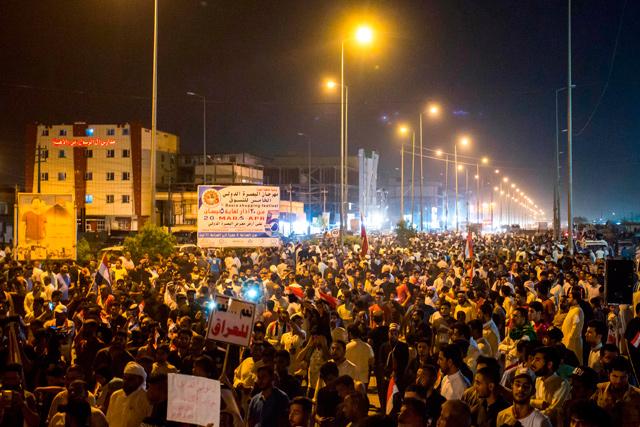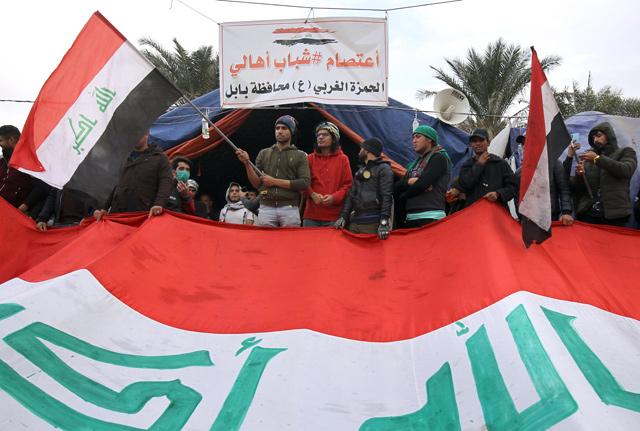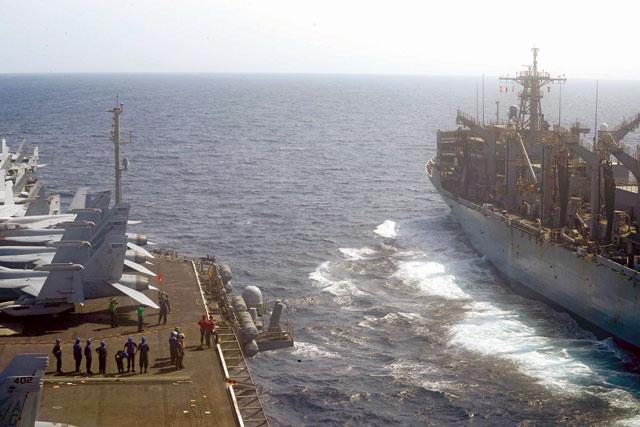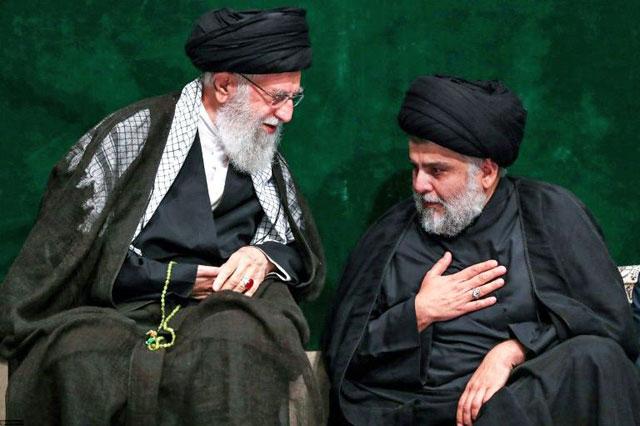You are here
Iraqi protesters urge Baghdad to stay out of US-Iran showdown
By Reuters - May 26,2019 - Last updated at May 26,2019

Iraqi followers of Shiite Muslim cleric Moqtada Al Sadr wave national flags and raise protest signs as they demonstrate in the southern city of Basra on Friday, against involvement in any conflict between Iran and the United States (AFP photo)
BAGHDAD — Thousands of supporters of a populist Iraqi Shiite Muslim cleric urged political and factional leaders on Friday to stay out of any conflict between Baghdad's two biggest allies, Iran and the United States.
Protesters from the movement of Moqtada Al Sadr, who once led Shiite militiamen against US forces and is also vocally critical of Iranian influence in Iraq, chanted "no to war" and "yes to Iraq" in central Baghdad and the southern city of Basra.
Iraqis worry that their country will be caught up in any escalation of US-Iranian tensions, which spiked earlier this month when President Donald Trump's administration said it had sent additional forces to the Middle East to counter alleged threats including from Iranian-backed militias in Iraq.
Politicians and Shiite paramilitary leaders have called for calm and the Iraqi government has tried to position itself as a mediator between the two sides.
"We've just recovered from Daesh. Iraq must not be used as a base to try to harm any country. America doesn't want Iraq to be stable," said protester Abu Ali Darraji.
There was speculation that Sadr would speak to demonstrators in Baghdad but he did not appear. The firebrand leader, whose political bloc came first in Iraq's parliamentary election last year, is a friend of neither Washington nor Shiite Iran.
The United States once described Sadr as the most dangerous man in Iraq, and designated his militia at the time, the Mehdi Army, a bigger threat to its forces than Al Qaeda during an insurgency against US troops after their 2003 invasion.
Sadr campaigned last year on a platform of Iraqi nationalism, opposed to both US and Iranian influence in the country.
Amid rising US-Iran tension, a rocket was fired last week into Baghdad's fortified Green Zone which houses government buildings and diplomatic missions, but caused no casualties. No group claimed responsibility; US officials say they strongly suspect Iran's local allies.
The attack came after Secretary of State Mike Pompeo warned Iraqi leaders that if they failed to keep in check powerful Iran-backed militias, Washington would respond with force.
US intelligence had showed militias positioning rockets near bases housing US forces, according to Iraqi security sources.
After pulling out of Iran's 2015 nuclear deal with world powers, Trump restored US sanctions on Iran last year and tightened them this month, ordering all countries to halt imports of Iranian oil or face sanctions themselves.
Iraq has said it will send delegations to Washington and Tehran to help calm tensions.
Both Iran and the United States say they do not want war, but security officials and analysts warn that a small incident could spark a new spiral of violence in the volatile region.
Related Articles
BAGHDAD — New rocket attacks in Iraq have killed a US civilian contractor, raising fears on Saturday that violence could escalate
WASHINGTON — The United States strongly suspects Shiite militias with ties to, and possibly encouragement from, Iran fired a rocket into Bag
TEHRAN — Powerful Iraqi cleric Moqtada Sadr joined Iran's supreme leader during a rare visit to Tehran to mark the Shiite holy day of A


















